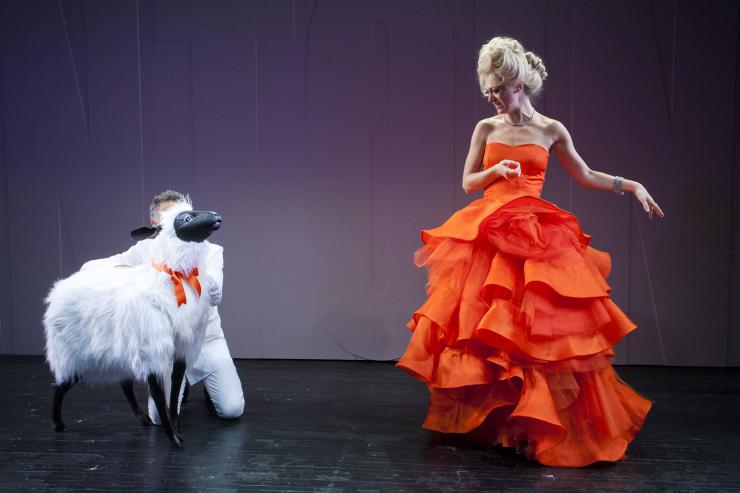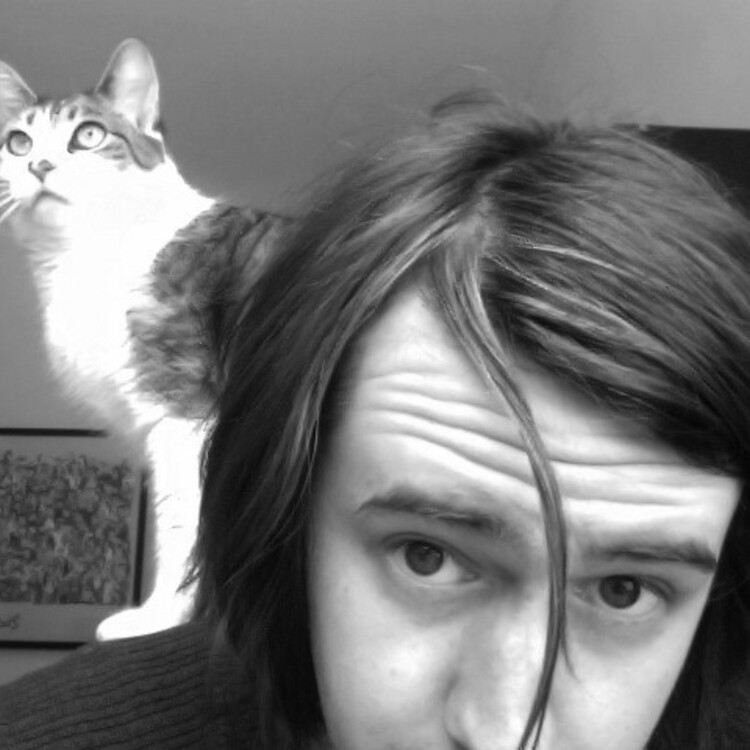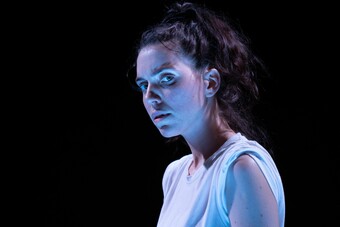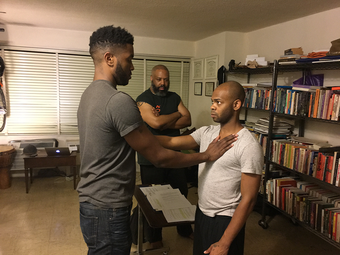First They Took Her Wigs, Now They Want Her Head
A few years back I saw Morrissey in concert, strutting his thinning pompadour with his name written behind him, in massive red letters that filled the stage. During the encore, he gave the crowd what they wanted—"There Is A Light That Never Goes Out"—and they thanked him by leaping on stage to give their idol a kiss. At first it was charming, but by the third or fourth stagecrasher, security tired of it. Morrissey was taken away from us; his band finished the measure, and that was it. He didn't even get to the part about the double decker bus.
In Marie Antoinette, playing through November 24 at Soho Rep, David Adjmi gives us an ego that would make Morrissey’s look small. She's also got her name writ large, stretching across a long narrow stage in letters big enough that little other scenery is required. As played by the razor-sharp Marin Ireland, this Marie wears her shallowness proudly, facing her downfall with a variety of attitudes that range from angry to sheepish to scared.
But as Morrissey understood, frivolity can be a powerful thing. The wigs and dresses of the Austrian-born queen of France and the consort of Louis XVI are stripped away during the French Revolution. But what seemed like a tragic flaw is revealed as a strength, a glittery armor to protect her from the newly formed French Republic that wants her dead. By the end we see a new side of Marie Antoinette: stupid and wasteful, yes, but with a serene confidence that only royalty can possess.
This production, directed by Rebecca Taichman, played last year at the American Repertory Theater and the Yale Repertory Theatre, where it looked much grander than is possible in Soho Rep's narrow, 73-seat theater. I didn't see the frillier version, but I didn't miss the gumdrop dresses and Marge Simpson wigs. Marie's dresses and updos are still over-the-top, but they are human scale, making it harder to dismiss them as caricatures of a decadent past. Rather than pushing Marie's lavish indulgences, and then attempting to bring us around to her side, this stripped-down production allows us to spend the whole play sympathizing with a woman we know is doomed from the start.
But what seemed like a tragic flaw is revealed as a strength, a glittery armor to protect her from the newly formed French Republic that wants her dead. By the end we see a new side of Marie Antoinette: stupid and wasteful, yes, but with a serene confidence that only royalty can possess
We meet Marie over tea, perched alongside two of her entourage: Therese de Lamballe (Jennifer Ikeda) and Yolande de Polignac (Marsha Stephanie Blake). They munch on cookies as they chat about riots in Paris, struggling over current events like a trio of cheerleaders stuck in debate club. The dialogue is anachronistic, rapid-fire, and irresistible. Adjmi has a knack for ditzes.
Marie: Uch intellectuals blech. You know what I love, mops!
Lamballe: Mops?
Marie: Those little lapdogs with snub noses?
Polignac: That baroness. What's her name—
Marie: Yes—
Polignac: She has a couple—
Marie: Yes and we have hundreds of them in a room somewhere in the palace.
Lamballe: You do?
Marie: Well I can't ever find it, but I hear the barking little echoes.
A monarch so stupid should be easy to hate, but Marie is rescued by Ireland, who insists on playing the queen as a grown-up, and by the fact that, like P.G. Wodehouse's famous nitwit Bertie Wooster, Marie is the smartest person in a household of fools. Her husband, Louis XVI (Steven Rattazzi) is a terrified man-child with a broken penis and an obsession with clocks, and her only confidant is a kind-eyed talking sheep (David Greenspan). She may be a silly woman, but her problems—from riots to libel to an urgent need for an heir—are no joking matter. She may talk like a reality TV character, but Adjmi's Marie has more cunning and intelligence than any “real” housewife.

When the Revolution comes to Versailles, Marie crouches on the floor, her dress bunched around her, as a deafening peasantry roar paralyzes her with fear. She and her family make a break for the border, but are captured, imprisoned, and eventually sentenced to die. Sofia Coppola's Marie Antoinette stopped short of showing her heroine in chains, allowing the lingering memory of her homecoming queen-style royal to be a glamorous one. Adjmi goes further, and in doing so finds depth that the film—with which this play has drawn natural comparisons—is unable to reach.
After their capture, Marie exchanges her tall blonde wig for a ragged, greying one. She strips out of her ketchup-red gown and stands half-naked, hunched over herself, waiting to be handed a stained grey smock. Her fabric cocoon has been shattered, and she emerges shivering, skinny and afraid. But in her mind, she has become "a butterfly with opalescent wings."
It is a terrific image, but Adjmi doesn’t let it stand on its own. Until now, his play has been feather-light, but Adjmi ends the play with a questionable lunge toward philosophy. As Marie crouches in her cell, dirty and increasingly mad, her sheep returns to discuss her downfall. She swaps discourse with him, spouting intellectual platitudes about political ideology and the French Republic that sound no more natural coming from her than they do from the sheep.
Marie: But common people can't take care of themselves. Democracy can't work.
Sheep: Hierarchy cannot survive because it goes against the laws of nature.
Marie: Yes & Democracy is godless rule.
Sheep: Come now, you don't really believe in god.
The philosophical back and forth lasts far too long. Perhaps the ending seems necessary on the page, but with a performance as strong as Ireland's, intellectual debate is not necessary. Ireland rises above these last awkward moments, just as Marie rises above powerlessness and madness and imprisonment, showing the backbone that was hidden beneath her battleship of a dress. She narrates her own beheading—the second time this year I saw a titular character do so at Soho Rep—proclaiming, "then I became the stuff of history, and they couldn't kill me."
As she awaits eternity, Adjmi's script calls for the lights to "grow blindingly bright." They did, but through some trick of acting or stagecraft or just plain theater, Ireland's eyes seemed to grow even brighter. Even as she waits to die, her name rises behind her, in letters massive enough to seem imperishable.







Comments
The article is just the start of the conversation—we want to know what you think about this subject, too! HowlRound is a space for knowledge-sharing, and we welcome spirited, thoughtful, and on-topic dialogue. Find our full comments policy here